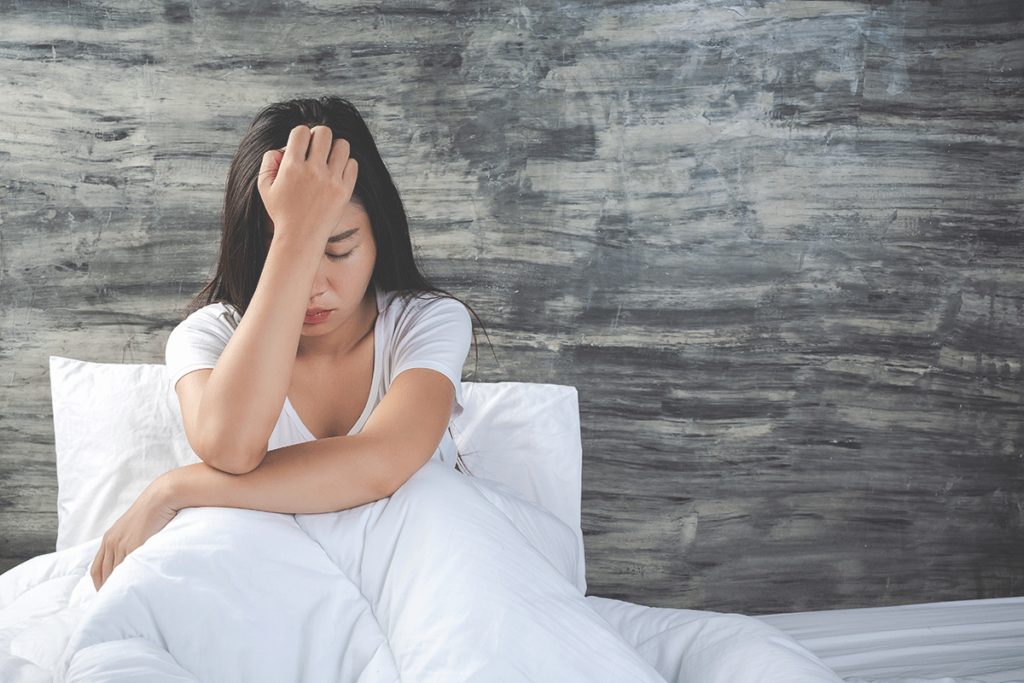Sleep is an essential component of our daily lives. Not only does it provide us with the necessary physical rest, but it also plays a crucial role in our mental well-being. Lack of sleep or poor quality sleep can have detrimental effects on our mental health. Sleep and mental health are closely intertwined, and a healthy sleep pattern is essential for maintaining good mental health. Studies have shown that individuals who do not get enough sleep are at a higher risk for developing various mental health conditions.
Call Evoke Wellness at Miramar today to learn about our mental health treatment programs in South Florida at 866.931.9312. We understand the importance of self-care and getting enough sleep to fully support your mental health journey.
The Link Between Sleep and Mental Health Issues
Sleep plays a crucial role in our overall health and well-being. It’s during sleep that our body repairs itself, consolidates memory, and restores energy. However, when it comes to mental health, the significance of sleep is often underestimated.
Research suggests a bidirectional relationship between sleep and mental health. Poor sleep can lead to mental health disorders, and conversely, conditions such as anxiety, depression, or post-traumatic stress disorder can disrupt sleep. In other words, sleep disturbances can be both a cause and a symptom of mental health issues.
Common Sleep-Related Mental Health Issues
Insomnia, or the inability to fall asleep or stay asleep, is often linked with mental health disorders like anxiety and depression. People with these conditions may find it hard to sleep due to racing thoughts, worry, or feelings of restlessness.
Hypersomnia
Hypersomnia, characterized by excessive sleepiness, is also common among individuals with depression. They might sleep excessively yet still feel tired during the day.
This can disrupt daily activities and lead to feelings of guilt and worthlessness.
Sleep Apnea
Sleep apnea is a condition where an individual’s breathing repeatedly stops and starts during sleep. It’s been linked with depression, as people with sleep apnea often experience disturbed sleep patterns that can affect their mood and energy levels.
Narcolepsy
Narcolepsy is a chronic sleep disorder that causes excessive daytime sleepiness and sudden, uncontrollable episodes of falling asleep. It can also lead to disruptions in nighttime sleep, leading to fatigue and other symptoms that can impact mental health.
Post-Traumatic Stress Disorder (PTSD)
PTSD is a mental health disorder that can occur after experiencing or witnessing a traumatic event. It’s often associated with recurring nightmares and flashbacks, which can significantly disrupt sleep patterns.
The Importance of Self-Care
Self-care plays an integral role in maintaining good mental health. It involves activities and practices that we engage in regularly to reduce stress and maintain and enhance our well-being. Adequate sleep is a fundamental aspect of self-care.
Getting enough quality sleep can improve mood, boost brain function, and increase resilience to stress. By prioritizing sleep, you’re giving your body and mind the chance to heal, restore, and rejuvenate.
Tips for Self-Care
Here are some self-care tips to improve sleep and, consequently, your mental health:
- Maintain a regular sleep schedule by going to bed and waking up at the same time each day.
- Create a relaxing bedtime routine, such as taking a warm bath or reading a book.
- Avoid caffeine, alcohol, and heavy meals close to bedtime.
- Keep your bedroom dark, cool, and quiet for optimal sleep conditions.
- Limit screen time before bed, as the blue light emitted from electronic devices can disrupt sleep.
- Exercise regularly, but avoid intense physical activity close to bedtime.
If you’re experiencing persistent sleep issues and struggling with your mental health, it’s essential to seek professional help. Mental health treatment programs, like those offered at Evoke Wellness at Miramar in South Florida, can provide specialized care and support for individuals with co-occurring sleep and mental health conditions.
Call Evoke Wellness at Miramar Today
At Evoke Wellness at Miramar, we understand the complex relationship between sleep and mental health. Don’t let sleep problems interfere with your mental health. Contact Evoke Wellness at Miramar online or call 866.931.9312 to take the first step toward a healthier, happier future.


